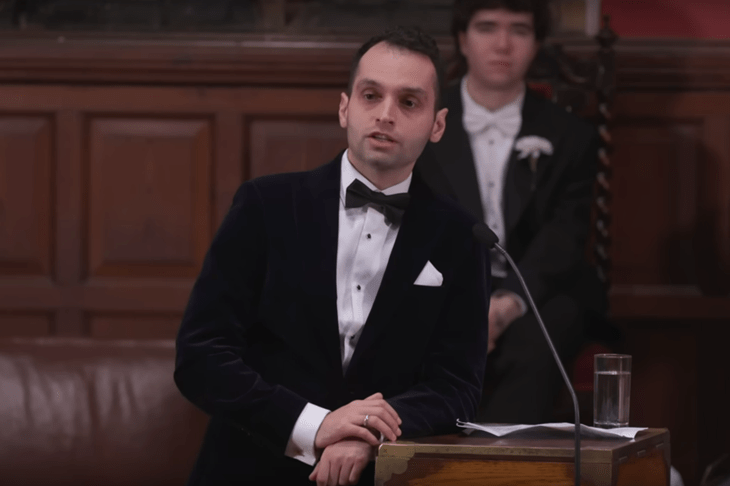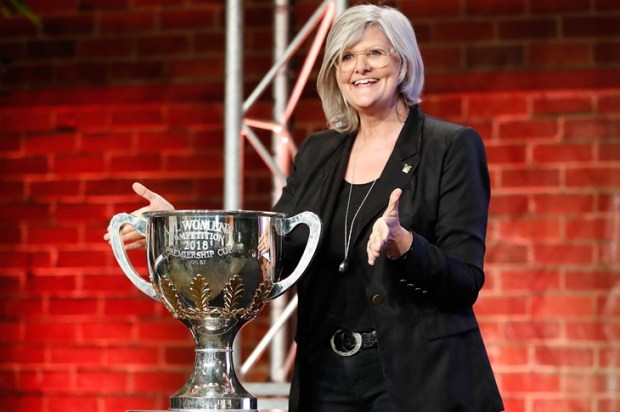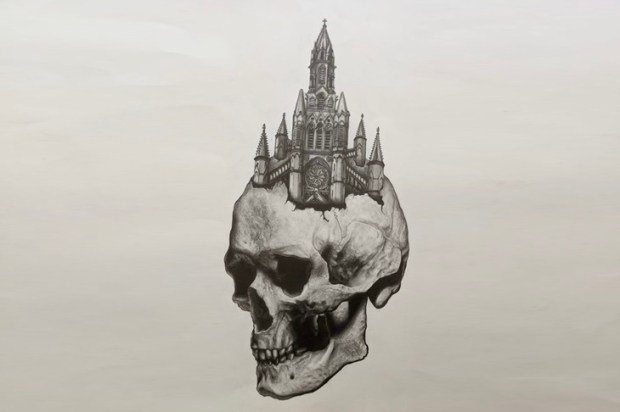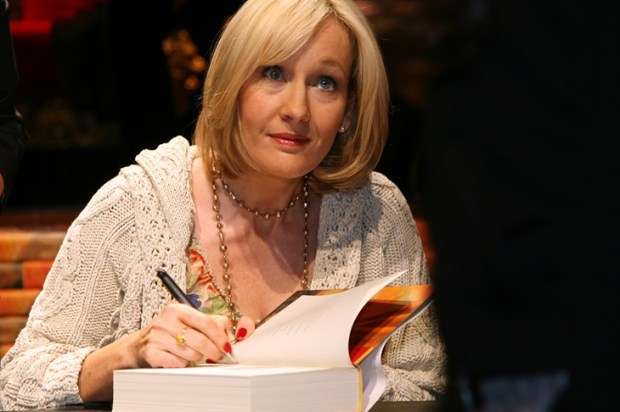Konstantin Kisin continues to seriously impress. At last week’s ARC conference in London, Kisin gave one of the most powerful speeches of the year, if not the 21st Century so far. But he has almost immediately backed it up with another prescient vignette on the current socio-political situation currently ailing the West:
Watch this. The Day the Delusion Died. @triggerpod @KonstantinKisin pic.twitter.com/UV77AAKDBt
— Ani O'Brien (@aniobrien) November 7, 2023
The monologue is aptly titled, The Day the Delusions Died. Kisin rightly perceives that the horrific events involving Hamas terrorists on October 7 – where 1,400 innocent people were raped, abducted and/or murdered – shattered many people’s long-held delusions.
Referring to the seminal work by Thomas Sowell, A Conflict of Visions: Ideological Origins of Political Struggles (1987) Kisin states:
We disagree about politics – Sowell argues – because we disagree about human nature. We see the world through one of two competing visions, each of which tells a radically different story about human nature.
Those with an unrestrained vision think that human nature is malleable and can be perfected. That believe that social ills can be overcome through collective action which encourages people to behave better. To subscribers of this view poverty, crime, inequality, and war are not inevitable. Rather, they are puzzles that can be solved. We need only say the right things, enact the right policies, and spend enough money and we will suffer these social ills no more. This worldview is the foundation of the progressive mindset.
By contrast, those who see the world through a constrained vision lens believe that human nature is a universal constant. No amount of social engineering can change the sober reality of human of self-interest or the fact that human empathy and social resources are necessarily scarce.
People who see things this way believe that most political and social problems will never be solved, they can only be managed. This approach is the bedrock of the conservative worldview.
Kisin is again right when he comments that many people on the left are starting to wake up – pun intended – to the Woke mind virus. In particular, that it’s not so much about protecting victims as it is the validation of power. As Kisin goes on to explain:
Nowhere is the shift from the constrained to the unconstrained vision starker than on immigration. For decades both Europe and America basked in an unconstrained vision of immigration. In the US the melting pot which could integrate the 19th Century Germans, Irish Catholics, or Japanese could surely absorb those crossing the southern border. And many of these new arrivals would do jobs Americans would not want to do.
Europe needed immigration to deal with an aging population with many European countries inviting people from their former colonies to fill labour shortages and skills gaps. But over time, especially from the late 90s onwards, the unrestrained vision ran rampant through media and political elites. And immigration went from being a solution to specific problems to a moral good in its own right.
I am myself an immigrant. When I moved to Britain from Russia in 1996 net immigration into Britain ran at 55,000 people per year. Last year, in 2022 net immigration stood at over 600,000 people per year.
Significantly, a similar situation is occurring here in Australia as well. According to Beidar Cho, Australian Bureau of Statistics head of demography, ‘13 months after international borders were re-opened, net overseas migration accounted for 81 per cent of growth and added 454,400 people to the population in the year to March 2023.’ Whereas in comparison, back in 1993 net immigration was a paltry 23,422.
The West is rapidly changing. And the events of October 7 are a sign of just how disparate our political views have become. But even more importantly, the false ideological assumptions of a constrained and unconstrained worldview have been exposed. And no amount of money, social policy or money will fix it. For the real battle goes to the very depth of the human soul and is concerned with what people actually believe.
Got something to add? Join the discussion and comment below.
Get 10 issues for just $10
Subscribe to The Spectator Australia today for the next 10 magazine issues, plus full online access, for just $10.


























Comments
Don't miss out
Join the conversation with other Spectator Australia readers. Subscribe to leave a comment.
SUBSCRIBEAlready a subscriber? Log in